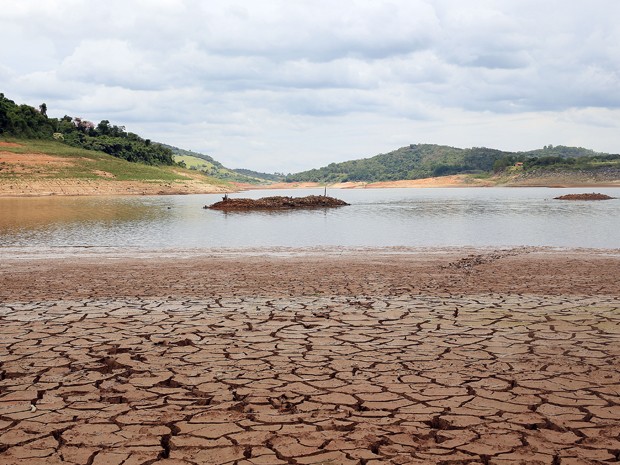22nd October 2014 Brasilia, Brazil
Science and Development – Newton Fund brings a new agenda of cooperation between the UK and Brazil
Guestpost by Rui Lopes

The anxious wait for the rain that now permeates the mind of people in São Paulo and Rio brings back memories of my childhood in the arid north-eastern Brazil, where the rain is a sign of continuity of life and prosperity. The current drought experienced in the Brazilian Southeast region is unfortunately not our exclusivity. More frequent and longer, they concern societies from California to Australia.
Those are evident sings that, in fact, we have limited resources and, especially, the challenges are global. Unfortunately, the finitude is not unique to natural resources. We have some knowledge frontiers that still imprison us and expose the fragility of human existence. The national borders, in turn, are not immune to Ebola or to natural disasters.
Something intrinsically human is related to the origin and development of science: our curiosity. It is the feeling of sharing the same curiosity that unites researchers and scientists from all over the world, around a common challenge. Science is able to minimize social and cultural distances between peoples and nations. The Darwin expedition and his ship Beagle was certainly a great proof of that. His works in Rio de Janeiro in 1832, paved the first paths of curiosity that Brazilian and British would come to share. As a result, the botany inaugurated a history of scientific collaboration in various fields of knowledge between the two countries.
The contribution of the Royal Botanical Gardens Kew with the REFLORA Programme (digital repatriation of the Brazilian flora) has the ancestry in those first steps. Through the Newton Fund, in 2014, the British Government reaffirmed its commitment to a genuinely international science, dedicated to social development and poverty alleviation. Since its launch, as well as Reflora, different programs with several Brazilian institutions were benefited from resources of the two countries – for instance, CNPq (National Council for Scientific and Technological Development), CONFAP (National Council of Foundations of Research), SAE (Strategic Affairs Secretariat), CAPES (Coordination Improvement of Higher Education Personnel) and SENAI (National Industrial Apprenticeship).
Of course the British could not fail to honour one of their biggest and illustrious curious people, Isaac Newton, who came as the name of the new fund. Launched in Brazil by the Chancellor of the Exchequer George Osborne, the Newton Fund – to foster research and innovation in emerging countries – will invest £ 75 million (approx. R$262 million) in various programs that include mobility, research and training in 15 countries by March 2015. In Brazil, there will be invested £27 million (approx. R$94 million) by 2017 – the largest budget for partnerships of the British diplomatic mission in Brazil.
As part of this new moment, last week, the UK was the highlight of the National Week of Science and Technology – organized by the Brazilian Ministry of Science, Technology and Innovation – as it brought the lecture of Prof. Phill Macnaghten about “Governing GM Crops: Global Lessons for Inclusive Agricultural Development” and celebrated a series of new initiatives with CAPES, CNPq and CONFAP. The Professor emphasized the social responsibility that science has in relevant debates to society, as in the case of GM.
The Fund, thus, brings a new paradigm in the global relations of scientific collaboration and in Brazil particularly in agriculture, health, climate change and urban development. From researchers to policy makers, the Fund is establishing and nurturing innovative partnerships in the countries where it operates.
This is how the science must be seen: as an instrument of social transformation and closeness between people. Our resources are limited, not human curiosity.
Rui has an International Relations background and has lived in the US, Germany and Mozambique studying or working with development studies related to family agriculture, education and urban development. Since 2012, he has been working with Science Diplomacy in the British Diplomatic posts in São Paulo and Brasília and is currently Newton Fund Manager. From Fortaleza, in the coast of Brazil’s semi-arid northeast and still one of the poorest areas of the country, is a self-confessed travel addicted.